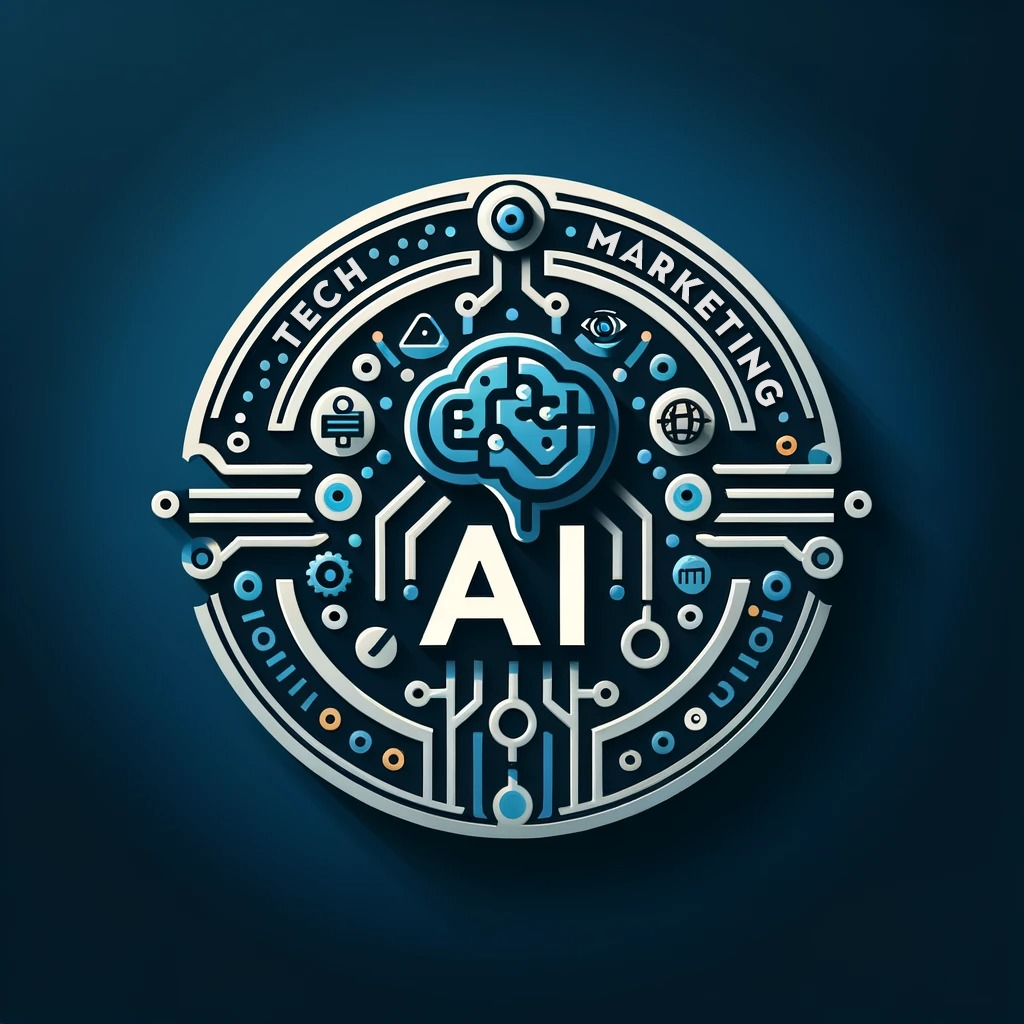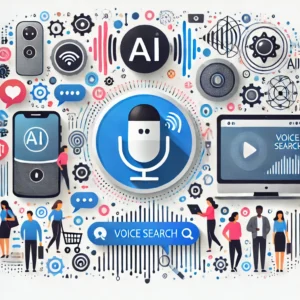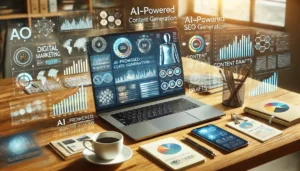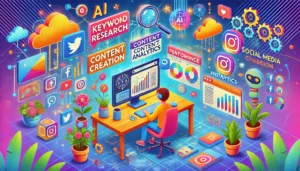In the digital age, the landscape of Search Engine Optimization (SEO) is continually evolving. Traditional methods of monitoring and optimizing SEO performance are being overshadowed by the rise of Artificial Intelligence (AI) tools. These modern tools are not only enhancing efficiency but also providing deeper insights and unprecedented accuracy. This blog delves into the various AI tools available for monitoring SEO performance, explaining how they work, and highlighting the broader impact of AI on the SEO industry.
The Evolution of SEO
SEO has come a long way since its inception. In the early days, keyword stuffing and backlinks were the primary strategies. However, as search engines like Google became more sophisticated, their algorithms started to prioritize user experience, relevance, and quality content. This shift necessitated more advanced methods of SEO analysis and optimization, paving the way for AI integration.
The Role of AI in SEO
AI has revolutionized many industries, and SEO is no exception. The primary advantages of AI in SEO include:
- Automation: AI can automate repetitive tasks such as keyword research, site audits, and performance tracking, freeing up time for SEO professionals to focus on strategy and creativity.
- Data Analysis: AI can process vast amounts of data at speeds unattainable by humans, providing insights that were previously out of reach.
- Personalization: AI can tailor SEO strategies to individual users by analyzing their behavior and preferences, leading to more effective and personalized marketing campaigns.
Top AI Tools for Monitoring SEO Performance
- Google Analytics
Google Analytics is a powerful tool that utilizes machine learning to provide insights into website traffic and user behavior. Its AI-driven features include predictive analytics, which can forecast future trends based on historical data, and anomaly detection, which alerts users to significant changes in website performance.
Key Features:
- Predictive Analytics: By analyzing historical data, Google Analytics can predict future trends, helping businesses to prepare and adjust their strategies accordingly.
- Anomaly Detection: This feature identifies unusual changes in traffic patterns, alerting users to potential issues or opportunities.
- User Behavior Insights: AI analyzes user interactions to provide insights into how visitors navigate and engage with the website, allowing for better optimization of user experience.
- Ahrefs
Ahrefs is a comprehensive SEO tool that uses AI to analyze backlinks, keyword rankings, and competitor strategies. Its AI-powered Site Audit feature crawls websites to identify technical SEO issues, offering actionable recommendations to improve site health.
Key Features:
- Backlink Analysis: AI evaluates the quality and relevance of backlinks, helping users understand their link profile and identify potential link-building opportunities.
- Keyword Research: AI suggests high-performing keywords and related terms, providing a solid foundation for content strategies.
- Competitor Analysis: Ahrefs uses AI to analyze competitors’ strategies, offering insights into their strengths and weaknesses.
- Moz Pro
Moz Pro leverages AI to provide keyword recommendations, track rankings, and analyze competitors. Its Keyword Explorer tool uses machine learning to predict keyword performance and suggest related terms that can enhance SEO strategies.
Key Features:
- Keyword Explorer: AI-driven predictions help users identify the most effective keywords to target.
- Rank Tracking: Moz Pro’s AI tracks keyword rankings over time, providing insights into the effectiveness of SEO efforts.
- Site Audits: AI-powered audits identify technical issues and provide actionable recommendations for improvement.
- SEMrush
SEMrush is an all-in-one marketing tool that incorporates AI to deliver in-depth SEO analysis. Its AI algorithms help with keyword research, competitor analysis, and site audits. The tool’s Content Marketing Platform uses AI to optimize content for better search engine rankings.
Key Features:
- Keyword Research: AI identifies high-performing keywords and suggests related terms.
- Competitor Analysis: AI analyzes competitors’ SEO strategies, providing insights into their strengths and weaknesses.
- Site Audits: AI-powered audits identify technical issues and provide recommendations for improvement.
- BrightEdge
BrightEdge uses AI to transform online content into tangible business results. Its AI engine, Data Cube, analyzes large datasets to uncover SEO opportunities and track content performance. The platform’s HyperLocal feature uses AI to optimize for local search results, enhancing visibility for businesses targeting specific geographic areas.
Key Features:
- Data Cube: AI analyzes large datasets to identify SEO opportunities and track performance.
- HyperLocal: AI optimizes content for local search results, improving visibility for businesses targeting specific areas.
- Content Performance: AI tracks content performance, providing insights into what works and what doesn’t.
- Surfer SEO
Surfer SEO is a content optimization tool that uses AI to analyze top-performing pages and provide guidelines for creating SEO-friendly content. It examines over 500 on-page signals to determine what makes high-ranking pages successful, helping users to optimize their content accordingly.
Key Features:
- Content Optimization: AI provides guidelines for creating SEO-friendly content based on analysis of top-performing pages.
- On-Page Signals: AI examines over 500 on-page signals to determine what makes high-ranking pages successful.
- Content Audit: AI-powered audits identify areas for improvement in existing content.
- Clearscope
Clearscope leverages natural language processing (NLP) to improve content relevance and quality. Its AI-driven content reports analyze top-ranking pages for a given keyword, identifying key themes and terms to include in your content to improve its SEO performance.
Key Features:
- Natural Language Processing: AI uses NLP to analyze top-ranking pages and identify key themes and terms.
- Content Reports: AI-driven reports provide insights into how to improve content relevance and quality.
- Keyword Analysis: AI suggests related terms and phrases to include in content for better SEO performance.
How AI is Changing SEO
- Enhanced Keyword Research
Traditional keyword research methods are often time-consuming and can miss valuable opportunities. AI tools streamline this process by analyzing vast amounts of data to identify high-performing keywords and suggest related terms. These tools can also predict future keyword trends, allowing businesses to stay ahead of the curve.
- Improved Content Creation
AI tools like Clearscope and Surfer SEO provide detailed insights into what makes top-performing content successful. By analyzing factors such as keyword density, readability, and user engagement, these tools help content creators to produce high-quality, SEO-optimized content that ranks well on search engines.
- Better User Experience
Search engines prioritize websites that offer an excellent user experience. AI tools help identify and fix issues that could negatively impact user experience, such as slow page load times, broken links, and poor mobile optimization. By improving these aspects, businesses can enhance their SEO performance and user satisfaction.
Conclusion
The integration of AI into SEO tools has revolutionized the way businesses approach SEO. These tools provide deeper insights, greater accuracy, and enhanced efficiency, enabling businesses to stay ahead in the competitive digital landscape. In the next part of this blog, we will explore more about the impact of AI on SEO and look at some case studies that demonstrate the power of AI in action. Stay tuned!
AI Tools for Monitoring SEO Performance: Revolutionizing the Digital Landscape (Part 2)
In the first part of this blog, we explored the evolution of SEO, the role of AI in SEO, and reviewed several top AI tools for monitoring SEO performance. In this second part, we will delve deeper into the broader impact of AI on SEO, explore additional AI tools, and examine real-world case studies that highlight the transformative power of AI in the SEO industry.
The Broader Impact of AI on SEO
The integration of AI into SEO has not only improved efficiency and accuracy but also transformed the way businesses strategize and implement their SEO campaigns. Here are some of the broader impacts of AI on SEO:
- Predictive Analysis and Insights
AI’s ability to predict future trends based on historical data is invaluable for SEO. Predictive analytics helps businesses forecast changes in search engine algorithms, keyword popularity, and market trends. This foresight allows for proactive adjustments to SEO strategies, ensuring that businesses remain competitive and relevant.
- Enhanced User Intent Understanding
Understanding user intent is crucial for effective SEO. AI tools analyze user behavior, search queries, and interaction patterns to discern the underlying intent behind searches. This deep understanding enables businesses to create content that precisely meets user needs, leading to higher engagement and better rankings.
- Real-Time Data Processing
AI’s capability to process vast amounts of data in real-time provides immediate insights into SEO performance. This real-time analysis helps businesses quickly identify and rectify issues, capitalize on emerging opportunities, and adjust strategies dynamically.
- Voice Search Optimization
With the rise of voice-activated assistants like Siri, Alexa, and Google Assistant, optimizing for voice search has become essential. AI tools can analyze voice search patterns and optimize content to cater to conversational queries, enhancing visibility in voice search results.
- Personalized User Experiences
AI enables the creation of personalized user experiences by analyzing individual user behavior and preferences. This personalization extends to SEO, where AI can tailor content and search results to specific user segments, improving relevance and engagement.
Additional AI Tools for SEO
- MarketMuse
MarketMuse uses AI to help content creators optimize their content for SEO. Its AI-powered platform provides insights into content gaps, suggests relevant topics, and offers recommendations for improving content quality and relevance.
Key Features:
- Content Briefs: AI-generated briefs provide detailed guidelines for creating SEO-optimized content.
- Topic Modeling: AI analyzes existing content to identify gaps and suggest relevant topics.
- Content Optimization: AI-driven recommendations help improve content quality and SEO performance.
- Frase
Frase uses AI to create content that aligns with search intent. It analyzes search queries, identifies common questions, and generates content outlines that address user needs effectively.
Key Features:
- Content Research: AI analyzes search queries and identifies common questions related to a topic.
- Content Generation: AI-generated outlines help create content that aligns with user intent.
- SEO Optimization: AI-driven recommendations improve content’s SEO performance.
- RankBrain
RankBrain, part of Google’s core algorithm, uses machine learning to understand search queries and rank pages more effectively. It helps Google interpret user intent and deliver more relevant search results.
Key Features:
- Query Interpretation: AI interprets complex and ambiguous search queries to deliver relevant results.
- Relevance Ranking: AI ranks pages based on relevance to user intent.
- Continuous Learning: AI continuously learns and adapts to changing search behaviors.
Real-World Case Studies
Case Study 1: Boosting Organic Traffic with AI-Powered Content Optimization
A mid-sized e-commerce business struggled with stagnant organic traffic. By integrating MarketMuse into their content strategy, they identified content gaps and optimized their existing pages. MarketMuse’s AI-driven insights helped them create high-quality, relevant content, leading to a 40% increase in organic traffic within six months.
Case Study 2: Improving User Engagement with Personalized Content
A travel blog used Clearscope to enhance their content’s relevance and quality. By leveraging Clearscope’s NLP capabilities, they tailored their articles to match user intent more accurately. As a result, user engagement metrics improved significantly, with a 30% increase in average session duration and a 20% decrease in bounce rate.
Case Study 3: Enhancing Local SEO with AI
A local restaurant chain used BrightEdge’s HyperLocal feature to optimize their online presence for local search results. By analyzing local search patterns and optimizing their content accordingly, they improved their visibility in local search results. This led to a 50% increase in foot traffic to their restaurants and a 35% increase in local online orders.
The Future of AI in SEO
The future of SEO is inextricably linked with AI advancements. Here are some predictions for how AI will continue to shape SEO:
- Greater Emphasis on User Experience
As search engines prioritize user experience, AI will play a crucial role in optimizing websites for speed, mobile usability, and overall user satisfaction. AI tools will continue to help businesses create seamless and engaging user experiences that drive better SEO results.
- Advanced Voice and Visual Search
Voice and visual search technologies are expected to grow, and AI will be at the forefront of this evolution. AI tools will help businesses optimize their content for voice queries and image-based searches, expanding their reach and relevance.
- Hyper-Personalization
AI will enable even more granular levels of personalization, tailoring content and search results to individual user preferences and behaviors. This hyper-personalization will improve engagement and conversion rates, making SEO efforts more effective.
- Integrated AI Solutions
AI tools will become more integrated, offering comprehensive SEO solutions that cover everything from keyword research to content creation and performance tracking. These integrated solutions will streamline SEO processes and provide holistic insights, making it easier for businesses to manage their SEO strategies.
Conclusion
The integration of AI into SEO has revolutionized the way businesses approach search engine optimization. AI tools offer unparalleled insights, efficiency, and accuracy, transforming SEO from a labor-intensive process into a sophisticated, data-driven strategy. As AI continues to evolve, its impact on SEO will only grow, enabling businesses to stay ahead in the competitive digital landscape.
By leveraging AI tools for monitoring SEO performance, businesses can gain a deeper understanding of their audience, create high-quality content, and achieve better search engine rankings. The future of SEO is undoubtedly intertwined with AI, and those who embrace these advancements will be well-positioned for success.




